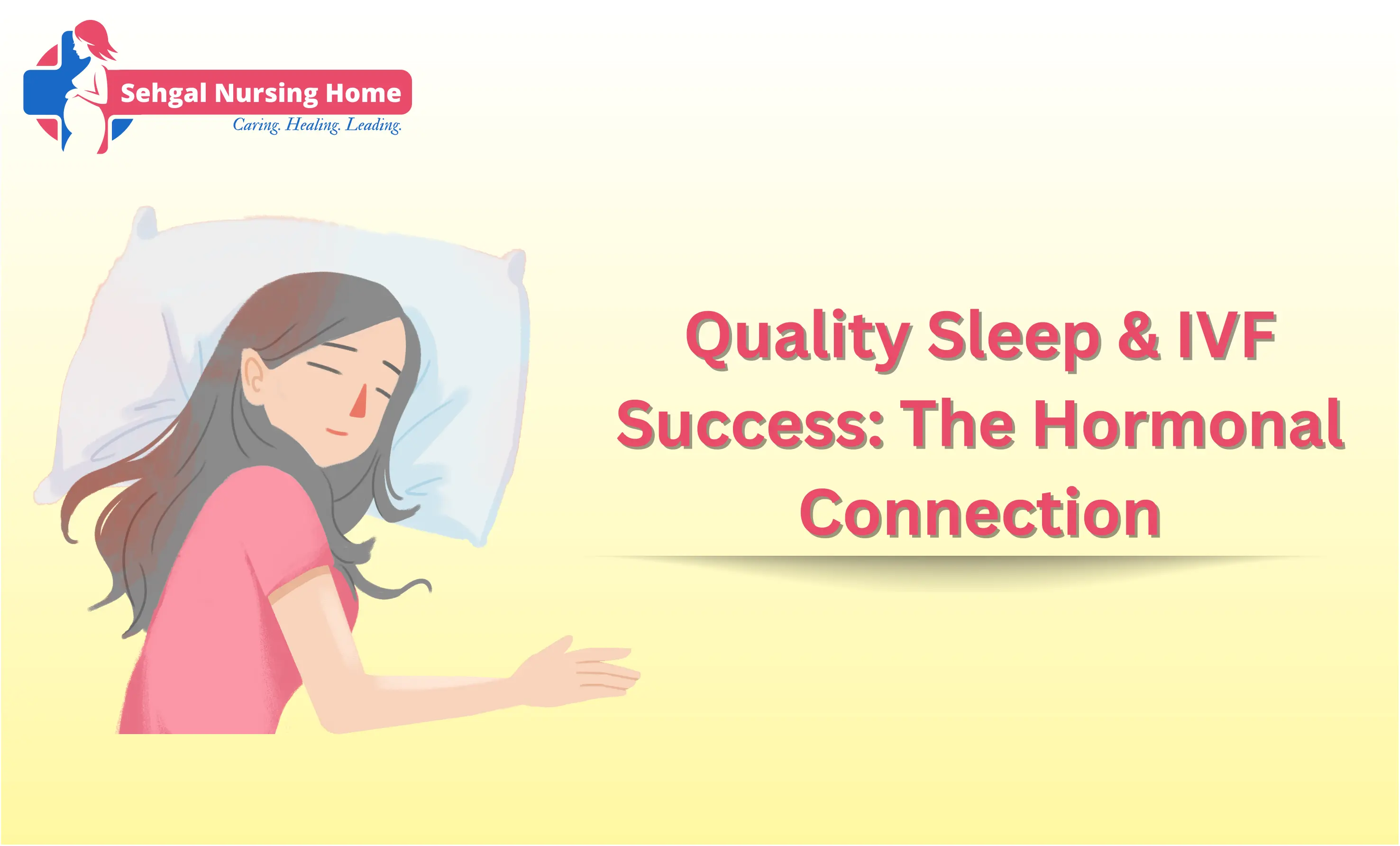
One of the factors that has the least appreciation in terms of fertility outcome is sleep. Diet, lifestyle, and medical intervention receive the necessary attention, but the quality of sleep is usually overlooked. However, there are new clinical results indicating that there is a close relationship between sleep, hormonal balance, and IVF success rates.
We have a holistic approach to fertility in Sehgal Nursing Home, a top IVF centre in Delhi, where we understand that the restful body is as important as the most sophisticated technology in ensuring successful conception.
Sleep is not merely about rest; it is the period during which your body is performing essential repair and hormonal control. In women undergoing IVF, this procedure is of special significance since reproductive hormones FSH (Follicle Stimulating Hormone), LH (Luteinising Hormone), oestrogen, and progesterone are balanced through the sleep-wake cycle.
Lack of sleep has the potential to disrupt this delicate hormonal rhythm, which impacts:
Therefore, sleep is not a luxury in fertility treatment, but a clinical requirement.
Melatonin is a natural antioxidant hormone that is secreted when a person is in darkness. It shields ovarian follicles against oxidative stress - a significant source of substandard eggs.
Poor sleep or the tendency to keep the light on at night means that women have low levels of melatonin, which may diminish the quality of oocytes (eggs). This can have a direct effect on fertilisation and embryo development in IVF, where every egg counts.
The lack of sleep elevates cortisol, the stress hormone. High doses of cortisol disrupt reproductive hormones, ovulation, and embryo implantation. The hormonal changes caused by chronic stress and lack of sleep in IVF patients may result in an increased difficulty for embryos to adhere to the uterine lining.
Sleep deprivation has been identified to cause insulin resistance, especially in women with PCOS (Polycystic Ovary Syndrome). As PCOS is a widely recognized cause of infertility, a balanced hormonal profile and improved IVF results require a stable level of insulin by means of quality sleep.
Progesterone helps to maintain early pregnancy through the stabilisation of the uterine lining. Poor rest may change the progesterone secretion, which affects the implantation success or the stability of early pregnancy following embryo transfer.
A few studies have established that women who sleep 78 hours per night exhibit improved IVF performance compared to those who sleep less than six hours or more than 9 hours. Excessive and insufficient sleep may interfere with reproductive hormones and lower the rates of success.
In a study conducted in Fertility and Sterility, it was established that patients with regular sleep habits and moderate melatonin levels had better clinical pregnancy results compared to those with disrupted circadian rhythms.
In Sehgal Nursing Home, the findings guide our patient care plan, which is to focus on sleep hygiene as a component of holistic fertility management.
Sehgal Nursing Home, which is a reputable IVF center in Delhi, is of the opinion that advanced reproductive technology can only be effective when the lifestyle is balanced.
During pre-IVF counselling, our fertility specialists usually talk to the patient about lifestyle issues such as sleep patterns.
Here’s how we approach it:
The following evidence-based sleep habits suggested by fertility specialists can help you support your IVF cycle:
Minor changes will have a quantifiable impact on your hormonal levels and mood during the course of treatment.
Suggest to Read :- IVF For Single Women In India: Creating A Complete Family At Affordable Cost
The emerging scientific data support the relationship between sleep and IVF success. Rest is not merely recovery, but it is regulation, and more so, where your hormones must work together to conceive.
In Sehgal Nursing Homes, we focus on both the high reproductive technology and supportive lifestyle to ensure the highest success rates. Being one of the most successful IVF centers in Delhi, we urge patients to consider sleep as one of their allies in the process of attaining the dream of having babies.
Your IVF process is more of a self-care process than a scientific process. Tonight, then, switch off the screens, turn down the lights, and allow rest to be your most natural fertility therapy.
© 2024 Sehgal Nursing Home, Inc. All rights reserved | Website designed by Digital Net India